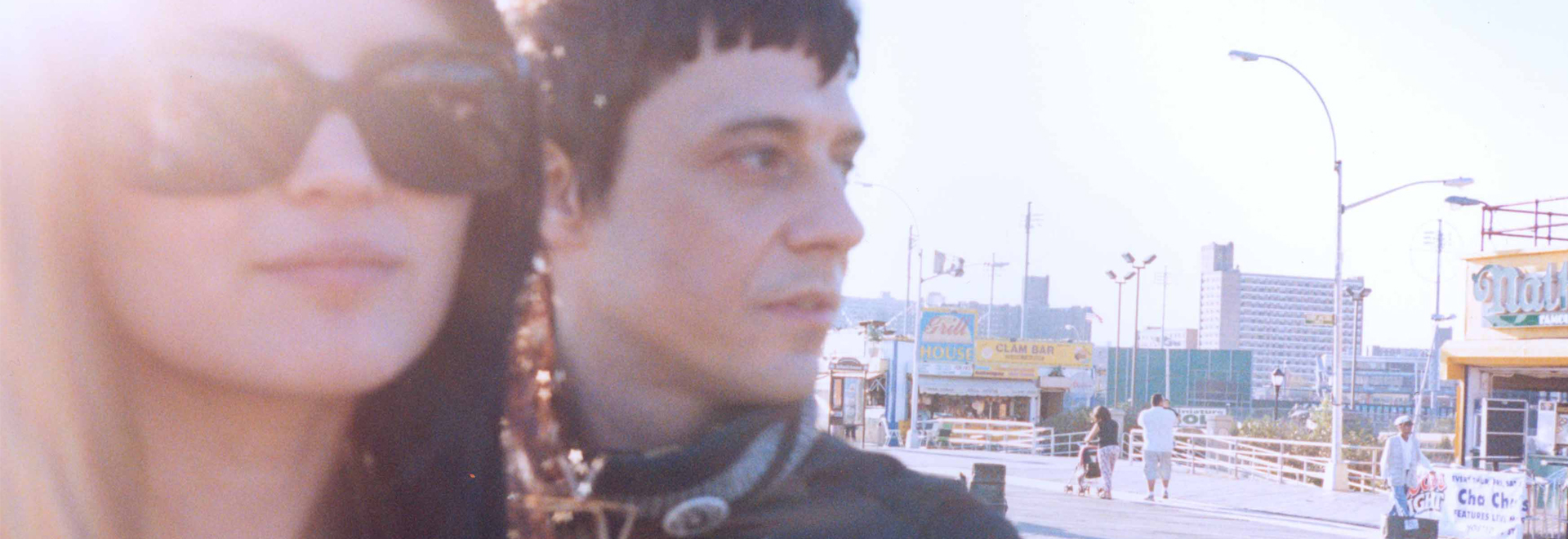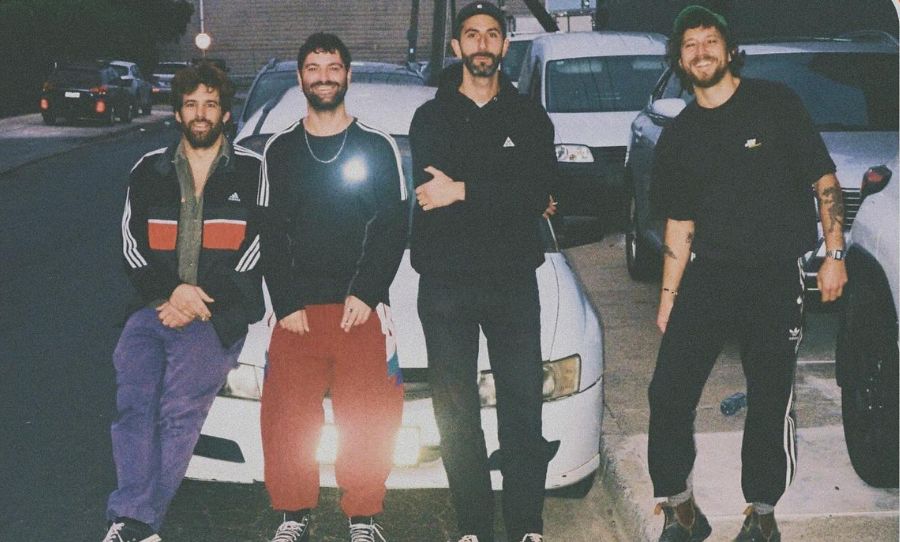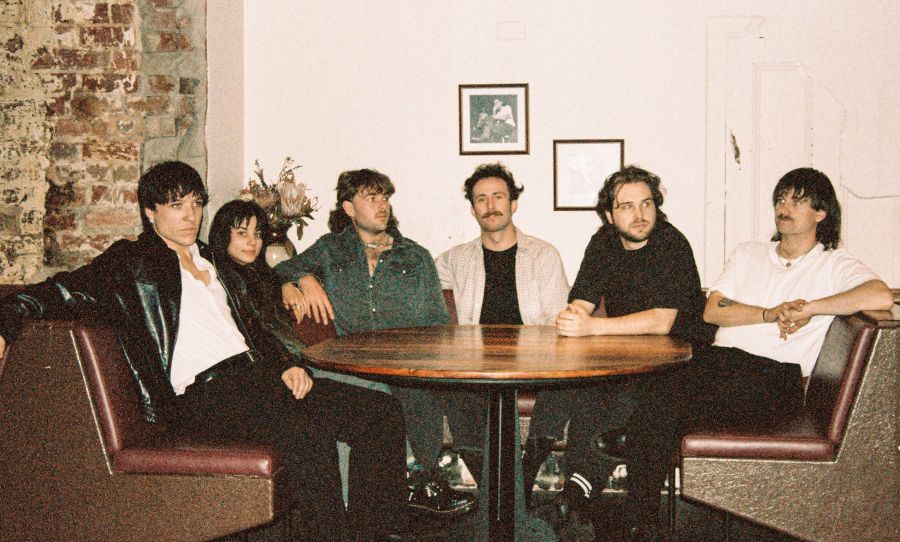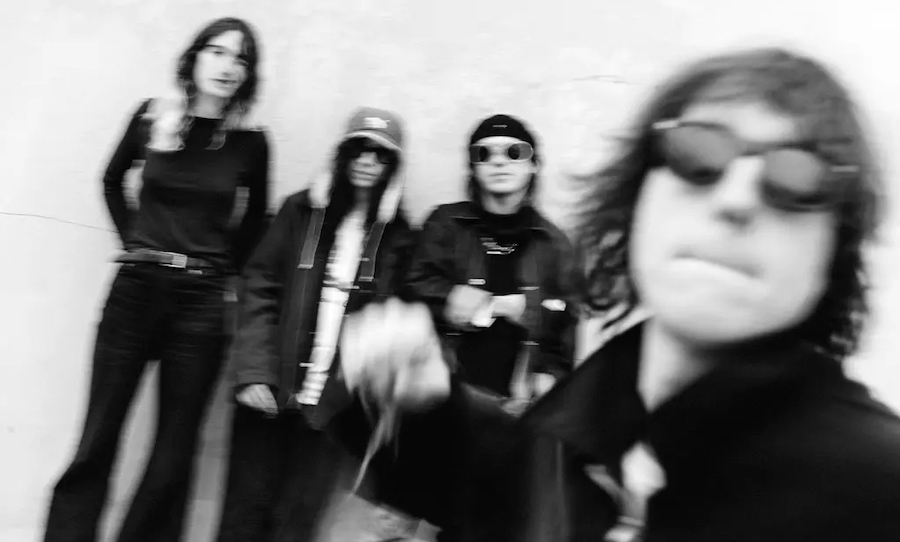Longevity is one of the most coveted things an artist can achieve. Nearly 20 years on, the songs of The Kills cut just as deep as the day they were released.
Throughout their career Alison Mosshart and Jamie Hince have compiled a body of work that projects as much as it turns inwards, allowing fans to find themselves within their deeply personal lyrics and addictive melodies. Through the eras of genre, publication, and promotion, The Kills have managed to rise above the rest.
Now, the band are back with a retrospective rarities record that allows for a deeper look into these last few decades. Bursting with heart and honesty, we caught up with Alison to chat through the release and the last 20 years of their music.
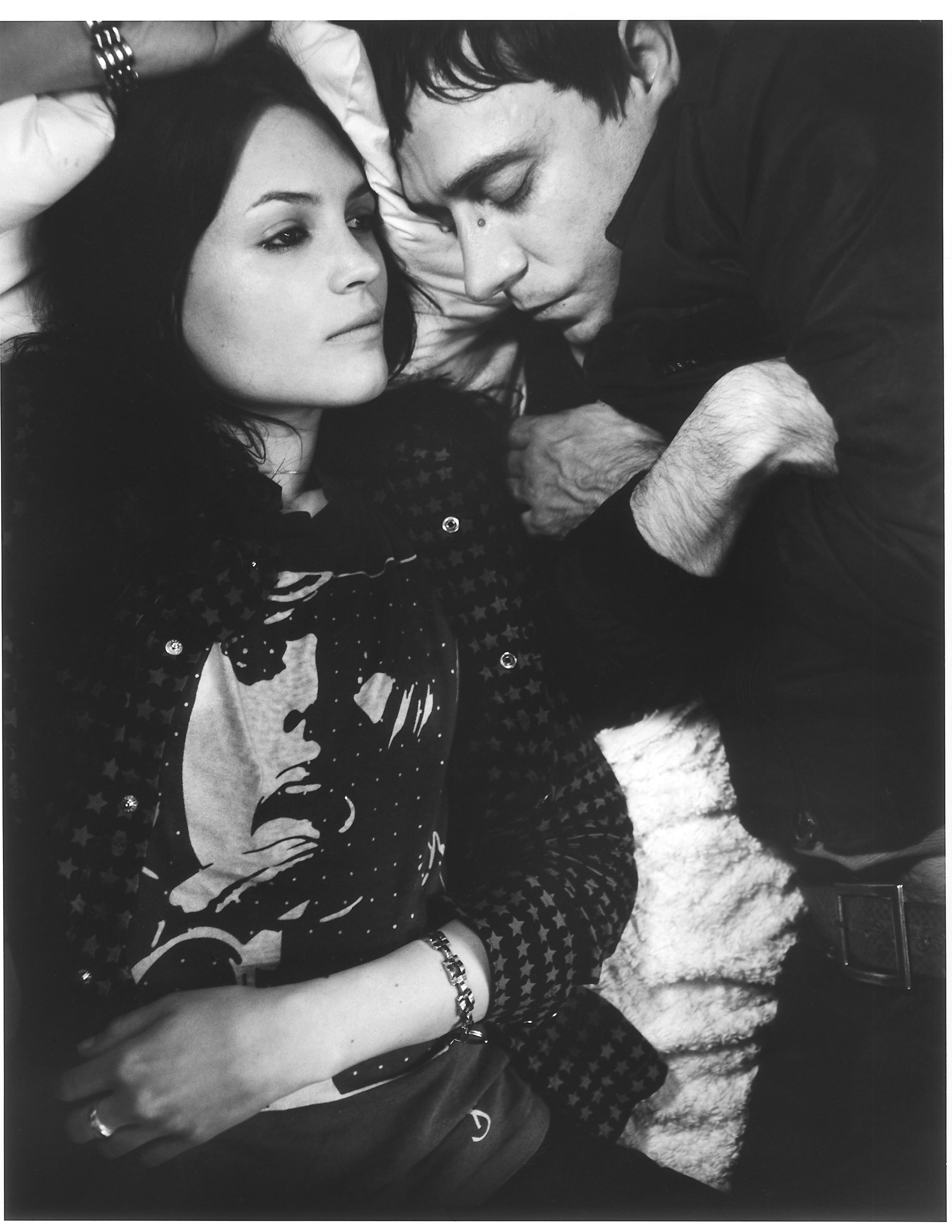
HAPPY: Congratulations on this new album.
ALISON: Oh, thank you.
HAPPY: Nearly two decades on from your debut, what are your thoughts on the longevity of The Kills? What do you think has made the project really stick?
ALISON: I think it’s because we really like each other [laughs]. I think that’s why we’ve done it for all this time, you know? We really like each other, we really enjoy writing music together, and we’re very close friends. We love touring the world together, I think that’s that’s the magic trick, really.
HAPPY: Yeah, absolutely. I know that a lot of people are drawn to your music by this incredible tension that you’ve got operating in your music and on stage. Do you find this to be a particular artistic catalyst for you?
ALISON: I think it’s sort of an accidental thing. When we started the band, we didn’t have a drummer and we were just moving so fast. And were just like, “okay, we won’t have any time to find a drummer. Let’s use a drum machine.” And that immediately created incredible tension because it is so hard, especially live, it’s so hard to… you get excited and you want to speed up, right? Or you get to a movie, but a quieter part and you want to slow down. Because of the drum machine, you can’t do that. So you’re constantly being pulled in every direction, trying to stay on this tightrope. It just adds this new level of total fear to it, especially live. I think that’s a big part of what people perceive when they’re watching. I can almost feel the audience getting scared too. That if we get lost, there’s no way back. You can’t stop it and start again. You can’t be like, “oh, wait, just hold on. I’ll find my place.” It’s like, you’re completely screwed.
HAPPY: It’s funny that you mention the drum machine because that ties in with the title of the album, doesn’t it?
ALISON: Yeah, that’s our third member of the band. The Little Bastard.
HAPPY: Was that an obvious choice to go with that title?
ALISON: It literally just came to me. We were putting this list of songs together and I was like, “it should be Little Bastard,” because it felt like they’re all these strange and rare and weird B-Sides, radio things, covers, and stuff that were never on record. They came out into the world in a flash and sort of disappeared under the miles and miles of playlists and the Internet and everything. Even for me, so many of those songs I haven’t heard in so long. That is what we called our drum machines. We always called them Little Bastards. It just felt like the right pedal to give this record.
HAPPY: Like you said, you guys have had this project through so many different phases of music. You went from your standard cassette/CD releases and now you’re onto streaming. Was it interesting revisiting that journey through this release?
ALISON: Yeah, it was. It was like going through an old diary that you’re afraid to look at and you go back and say, “oh, my hair was very different there. What was I wearing? What is that about? Where were we?” It was a real trip down memory lane. It was really nice. And, you know, music always has that thing. You hear a song and it always reminds you of where you were when you first heard it or what your life was like then. It’s the same when you write one, that you have this sensory recall of a time and place. It’s really interesting and it was a cool thing to look back and see where we started and where we’ve gotten to. It was hard because there were so many of these songs, there’s still so many that didn’t make it on this because there’s just only so much space on a final record. But it was a nice thing to cap it from 2002 to 2009 because it really solidified that idea. It really felt good to just focus on that time and it was a nice thing to do during lockdown in a pandemic, when you can’t really move forward, but you have a lot of time to look back. I don’t know if in normal life, at a normal time, considering the speed at which we’re always constantly going when life is normal, you never have a chance to look back like that. It’s not something I really do. So, it was nice to do that.
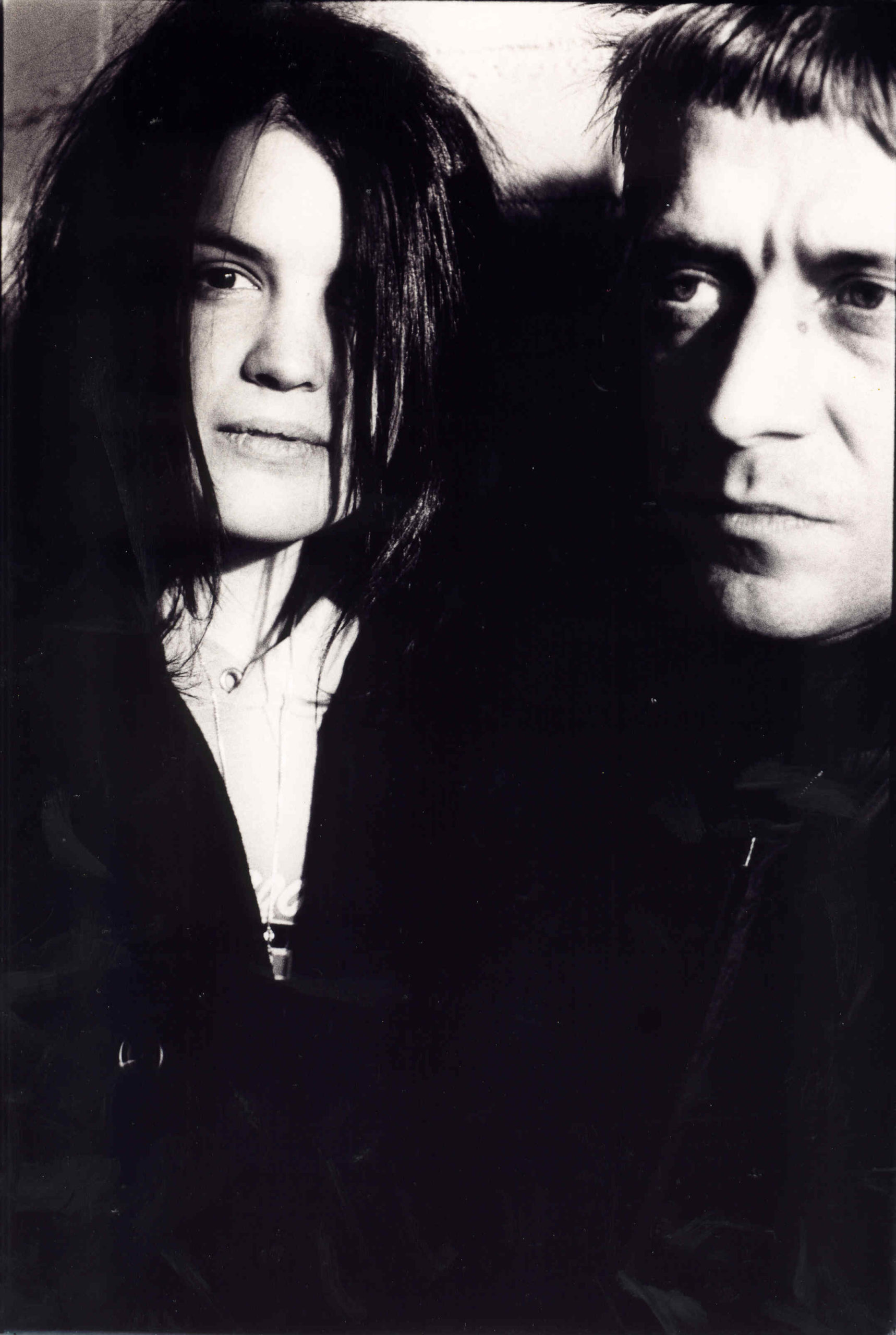
HAPPY: Yeah, absolutely. We are able to map any personal growth in your writing or your life from these songs?
ALISON: I don’t know, not in a way that I could put into words. I think, you look back because it feels so separated. You feel so separated from the person you were when you were 23, when you’re 41. It’s half a lifetime ago. What’s nice is to have so much space away from it that you can appreciate it without any embarrassment whatsoever. It’s nice to look at that and, I suppose, that’s all about time that’s what time does. It’s that you can have a different perspective and be really proud of the work that you did, even though it’s at the time you’re like, “oh, well, this song wasn’t good enough to go on record,” you were thinking in that way. It’s funny that now, when you play it, you’re like “that was cool. What was my problem?” It’s interesting, perspective is interesting. And it comes and it comes. But I think that was a lot of what Jamie and I were talking about was like, “why didn’t we use this song.” Or, what was it about it that we couldn’t quite figure out. But that’s just part of the artistic process, you make decisions and you stick with them and that’s it. Off and away you go.
HAPPY: Absolutely. What was the process like for selecting the tracks that made it on the album?
ALISON: Everything but Raise Me has been released before, but they were released at times like… remember when there were CD singles, which people don’t really do anymore? And you had to have like five fucking extra tracks on that, and you were like, “what? What for?” They wanted to make a CD and they were like, “we’re going to need a whole bunch of extra songs.” And so, you get put in the studio and you have one day to write three songs and record them. And you’re just like, “AHHH!” A lot of it came from that weird time in music, when you just needed all these extra tracks. If you were to put your record out in Japan, they’re like, “well, we want a special song.” And if you did it, you played a show in China, they’re like, “well, you can come play the show, but we need you to do a special release.” Just all this weird, one-off stuff. So, all of it, except for Raise Me has been released before, but in places that people would not normally know where to find them, you know?
HAPPY: Was there a flow and pace to the album that you were hoping to achieve? Because the songs aren’t chronologically placed.
ALISON: You know, Jamie did that. He put the playlist together and it pretty much matched up perfectly with the way I thought. You know, sometimes I’m sure it could go on in five different directions, but you just play around with it until it feels good. But there’s no like, “oh, this is this year and then this is the next song we wrote.” There’s no order like that. It’s really just about feel… and A-Sides and B-Sides [laughs].
HAPPY: [Laughs] I think it was in your press release that I read something about this collection and you said that this album tells a different story about you guys to the one that fans may have come to know. Did you, in a way, see this release as an opportunity to give audiences a look into your lives and music, that otherwise may have been missed on the studio albums?
ALISON: Yeah, I mean, this is a real behind-the-scenes sort of record, especially when it comes to the demos or recordings that were done in the day. They were never intended for an album release, they were never given that much care and attention. What you’re getting is the rawest form of creativity. You know, “we got to do this fast. We’re going to record this on a four-track. We’re going to record this on a Dictaphone, maybe a mini-disk.” Some of these things were just ideas that we worked on for a day and that is a really different side. It’s a really different thing that when you go to a studio and you’re like, “okay, I’m going to make an album and it’s this complete body of work.” It’s very freeing if you have to just record one song. You could be like, well, it could be anything. I could just go nuts and get it on tape and then that’s it and walk away. It’s not a career-changing moment. It’s just you writing music. I think it is a really nice and different perspective. And I love all that stuff, in other bands, I find weird things I never heard and I’m like “wow, this song’s so good.” I would ask the same questions you would ask and they would have the same answers I would answer.
HAPPY: I know that you’ve got a lot of projects happening at the moment and that you guys have actually been working on some new material. Do you feel that this is a nice little closing chapter on the past moving forward and you ready to kick off with some new stuff for The Kills?
ALISON: Yeah, we’ve been writing for the next record for a while and then the pandemic really scrambled everyone’s brains. I mean, it’s been a time of great anxiety and major change, you know. The creative process has been really hard. We’re both sort of getting back like right before that we have like seven or eight songs, we were basically almost done. Then all of this happened and all attention was focussed on keeping our family safe and figuring out how to do things and how to get from one place to the other safely and all of that. It became a real full-time job to navigate a pandemic that we have never lived through before. Now I feel, after Biden won the election, I feel a lightness in myself. I feel a little freer to be creative again. Happier and, even though we’re still in the depths of this pandemic and it’s getting scarier and scarier, there’s some sort of light at the end of the tunnel in this country. So yeah, it’s becoming more fun to work on music again.
HAPPY: Yeah, absolutely. Thank you so much for the chat, Alison it was so lovely talking to you.
ALISON: You are so welcome. Any time.
Little Bastards is available on all platforms. Grab your copy here
